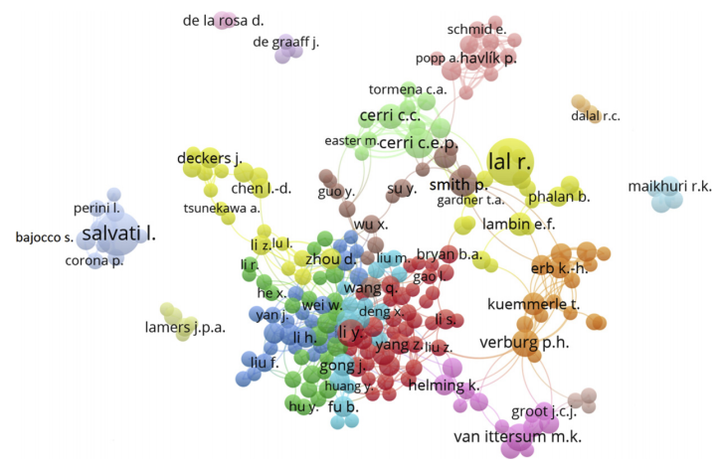Worldwide research trends on sustainable land use in agriculture

Abstract
Currently, 42% of the world’s population depends on agriculture for its livelihood, and agriculture drives the economy of most developing countries. Therefore, human life on our planet depends on its sustainability. Research on sustainable land use in agriculture has been gaining increasing relevance since the term ‘sustainable development’ was coined with the Brundtland Report in 1987. The objective of this study is to analyse the evolution of this line of research worldwide to date. A bibliometric analysis of the existing articles from the period 1988–2017 was conducted. The results show that this topic has been gaining relevance in land use studies. Extensive cooperative networks and a high level of international collaboration exist between the different agents involved in land use studies. The analysis of key words has shown four main research lines of inquiry: agronomy, which focuses on soil processes and the study of different crops; sustainable water management for irrigation; the analysis of changes in land use, especially as related to the increase in population, the need for supplies, and the expansion of urban land; and sustainable development in new forms of agrarian management, such as organic farming, permaculture, and multifunctional systems. The regions serving as the object of these studies are mainly the Americas, Asia, Oceania, and Western Europe. This highlights a research gap in regions such as Russia, the Middle East, and Africa. Future research should examine the development of circular economic systems in agricultural activity, perceptions and preferences of stakeholders, inclusion of the sustainability objective in planning urban spaces, improvement in irrigation water use efficiency, use of nonconventional water sources in agriculture, and development of management practises and crops that can adapt to the impact of climate change.